Steak has long sparked debate in the world of nutrition. Some praise it as a rich source of essential nutrients like protein, iron, and B vitamins, viewing it as a valuable part of a balanced diet. Others raise concerns about its saturated fat content and potential links to certain health issues when consumed in excess.
The conversation around steak is nuanced, with compelling arguments on both sides. Backed by insights from nutrition experts, this exploration takes a closer look at the benefits and risks to help you make informed choices about including steak in your meals.
1. Full Of Zinc For Immune Support

Zinc is a vital mineral for immune function. Steak is a rich source of zinc, which supports the immune system by aiding in cell development and function. This mineral plays a crucial role in wound healing and can even improve your sense of taste and smell.
However, not all steaks are created equal, and the zinc content can vary. Consuming steak in moderation ensures you get the zinc benefits without overloading on other nutrients. For those looking to boost their immune system naturally, steak can be a valuable addition to a balanced diet.
2. Packed With High-Quality Protein
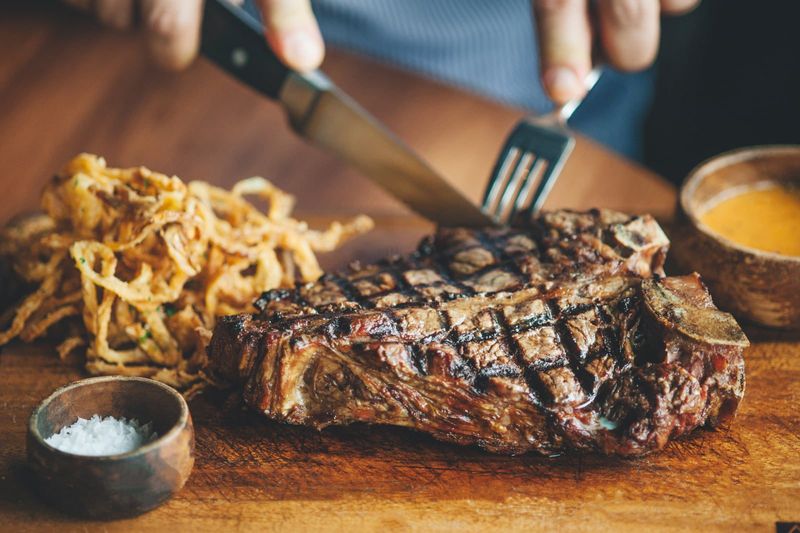
Protein is the building block of life, and there’s no denying the power of steak in this department. It’s loaded with high-quality protein that aids muscle growth and repair. For athletes and fitness enthusiasts, steak can be a great dietary inclusion.
Balance is key; too much protein can put stress on the kidneys. Enjoying steak as part of a varied diet ensures you reap the protein benefits while minimizing potential risks. Always consider portion sizes to make the most of this protein-packed powerhouse.
3. Saturated Fat Can Be A Concern

Saturated fat often raises eyebrows among health-conscious individuals. Steak typically contains a significant amount of this type of fat, which can influence heart health. Consuming excess saturated fat may lead to increased LDL cholesterol levels, a risk factor for heart disease.
Yet, not all fats are bad, and moderate steak consumption can fit into a healthy diet. Choosing lean cuts and trimming excess fat can help mitigate the risks. With mindful eating and smart choices, steak’s saturated fat content needn’t be a major concern.
4. Rich In Iron That Boosts Energy
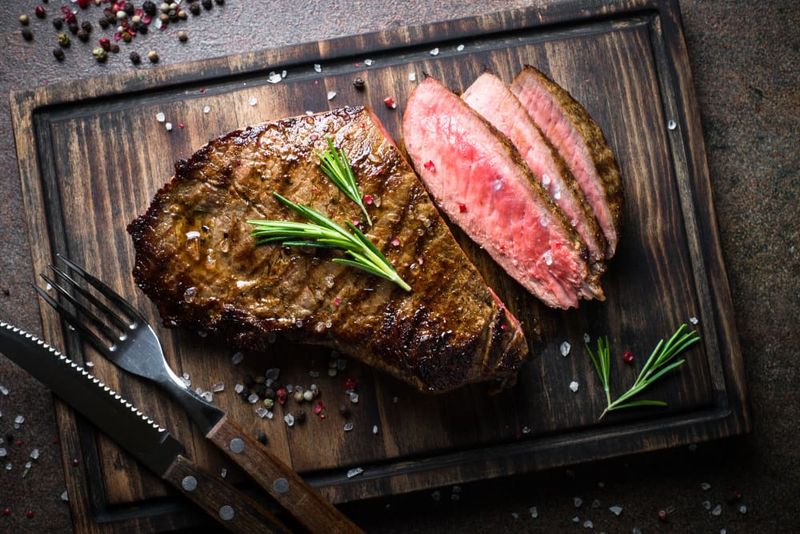
Iron is crucial for energy production, and steak is one of the best sources of heme iron, easily absorbed by the body. This mineral helps in the formation of hemoglobin, which carries oxygen throughout the body. For those with iron-deficiency anemia, steak can be beneficial.
But moderation is key; too much iron can lead to toxicity. Including steak in a balanced diet can help maintain energy levels and prevent fatigue. Always listen to your body’s needs and adjust your intake accordingly.
5. A Great Source Of Vitamin B12
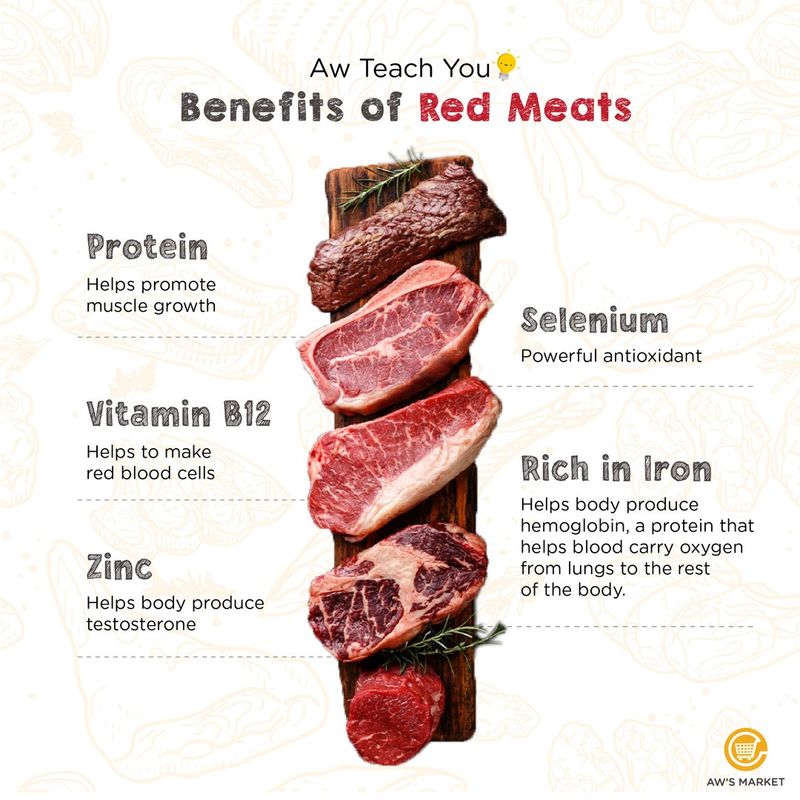
Vitamin B12 is essential for nerve function and red blood cell production. Steak is a fantastic source of this vitamin, making it a worthwhile choice for those looking to boost their B12 intake. Adequate B12 levels can support brain health and prevent anemia.
However, those on a strict plant-based diet may need alternative sources or supplements. Moderation and variety ensure that you benefit from steak’s B12 without over-reliance. Incorporating diverse foods can keep your diet balanced and nutritious.
6. May Raise LDL (Bad) Cholesterol

The potential impact of steak on LDL cholesterol levels is a hot topic among health experts. Regular consumption of red meat, like steak, can elevate LDL cholesterol, increasing heart disease risk. However, it’s essential to recognize that not all cholesterol is harmful.
Moderation and choosing lean cuts can help manage cholesterol levels effectively. Exploring different cooking methods and incorporating varied protein sources can also mitigate risks. Understanding the balance between indulgence and health is crucial for enjoying steak responsibly.
7. Too Much Red Meat Linked To Heart Risks
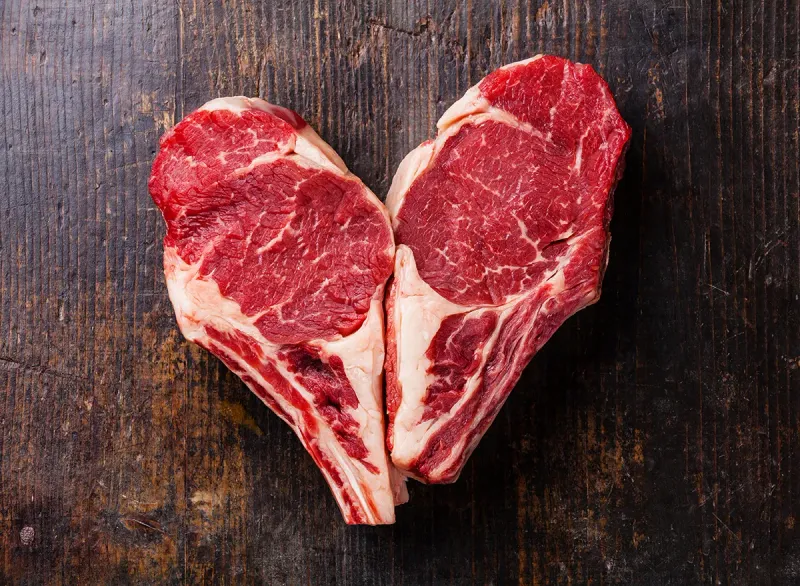
Excessive red meat consumption is often associated with heart health concerns. Some studies suggest a link between eating large amounts of steak and increased heart disease risk. However, moderation and mindful eating can mitigate these effects.
Balancing steak with plenty of vegetables and whole grains can support heart health. Being aware of portion sizes and meal frequency is key to enjoying steak without compromising cardiovascular well-being. By making informed choices, steak can still be savored in a heart-healthy diet.
8. Balance Is Key—Pair With Veggies And Whole Grains

Creating a balanced meal with steak involves more than just enjoying the meat itself. Pairing steak with a variety of vegetables and whole grains can enhance its nutritional profile. These additions provide fiber, vitamins, and minerals that complement steak’s rich protein content.
Such combinations can create a satiating and nutrient-dense meal. Exploring different cuisines and culinary styles can make steak meals more exciting and healthful. Emphasizing diversity in your diet ensures that steak remains a positive component of your meals.
9. Cooking Method Matters For Health

The way steak is cooked can significantly impact its health benefits. Grilling, broiling, or pan-searing can enhance flavors while minimizing unhealthy fats. However, charring or overcooking can produce harmful compounds.
Exploring different cooking methods, such as slow-cooking or sous-vide, offers healthier alternatives. Paying attention to cooking techniques and temperatures can make steak a more beneficial part of your diet. Experimenting with spices and marinades can also add flavor without extra calories.
10. Portion Size Makes A Big Difference
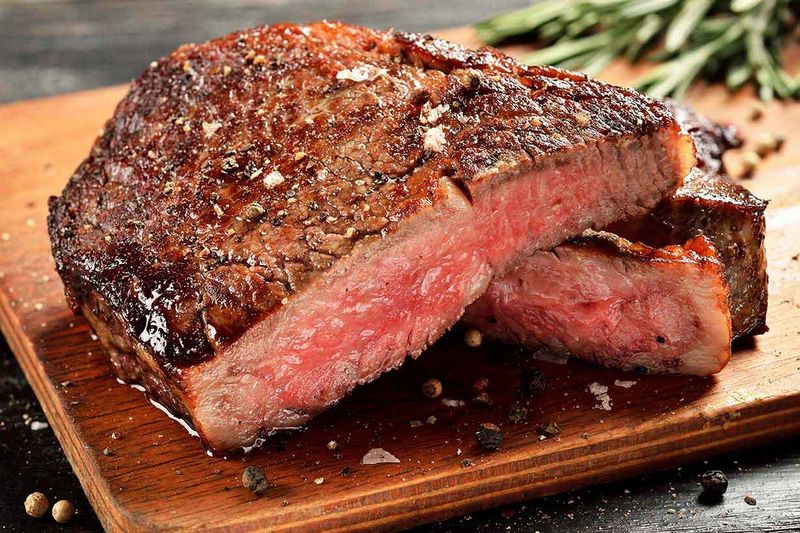
Portion control is a critical aspect of enjoying steak healthily. Eating large portions can lead to excessive calorie and fat intake, contributing to weight gain. However, when consumed in moderation, steak can be part of a balanced diet.
Understanding appropriate serving sizes and accompanying sides can help manage intake effectively. Making informed choices about portion sizes ensures that steak remains a delicious yet health-conscious option. Mindful eating can transform steak into a satisfying and guilt-free indulgence.
Leave a comment